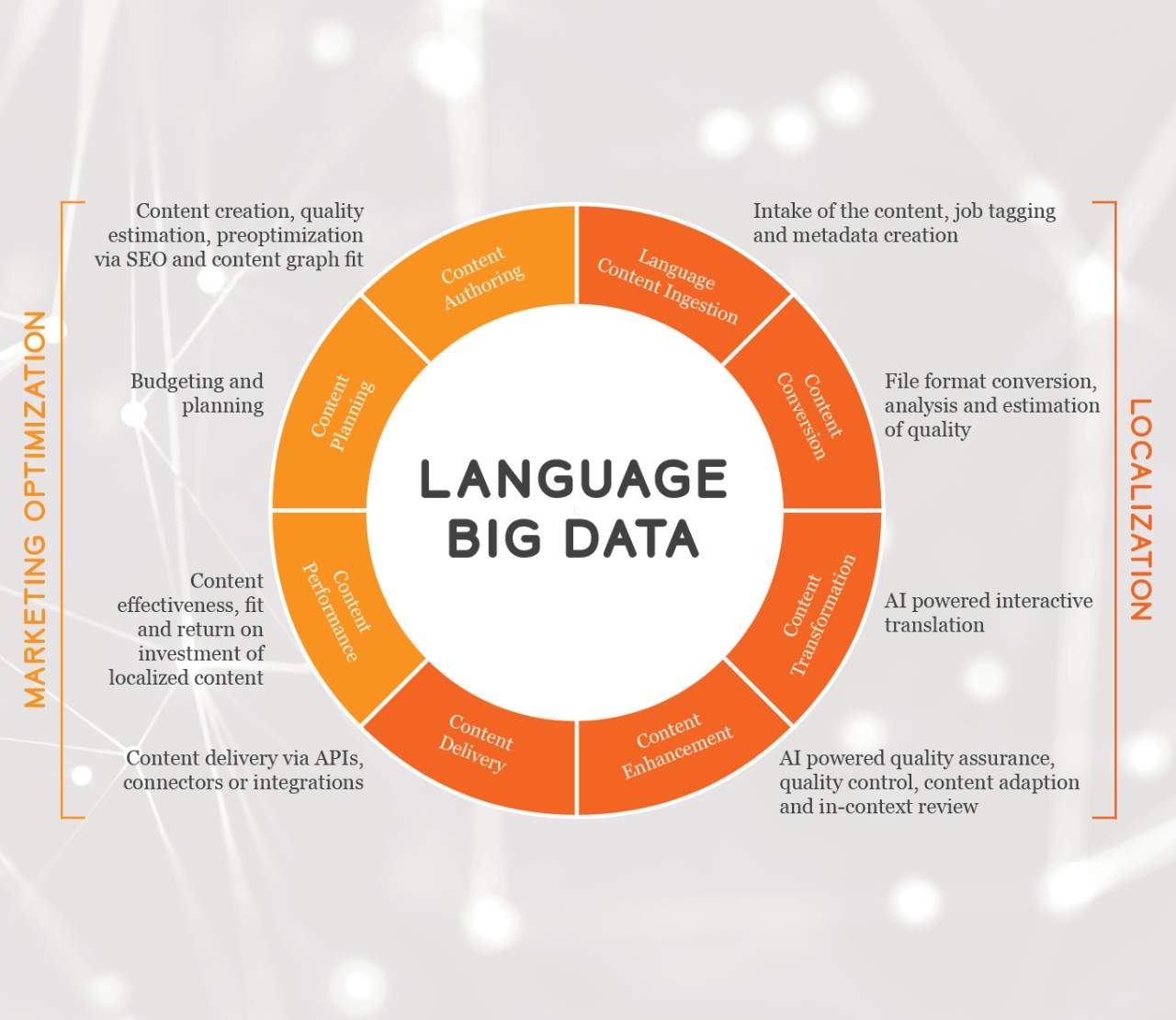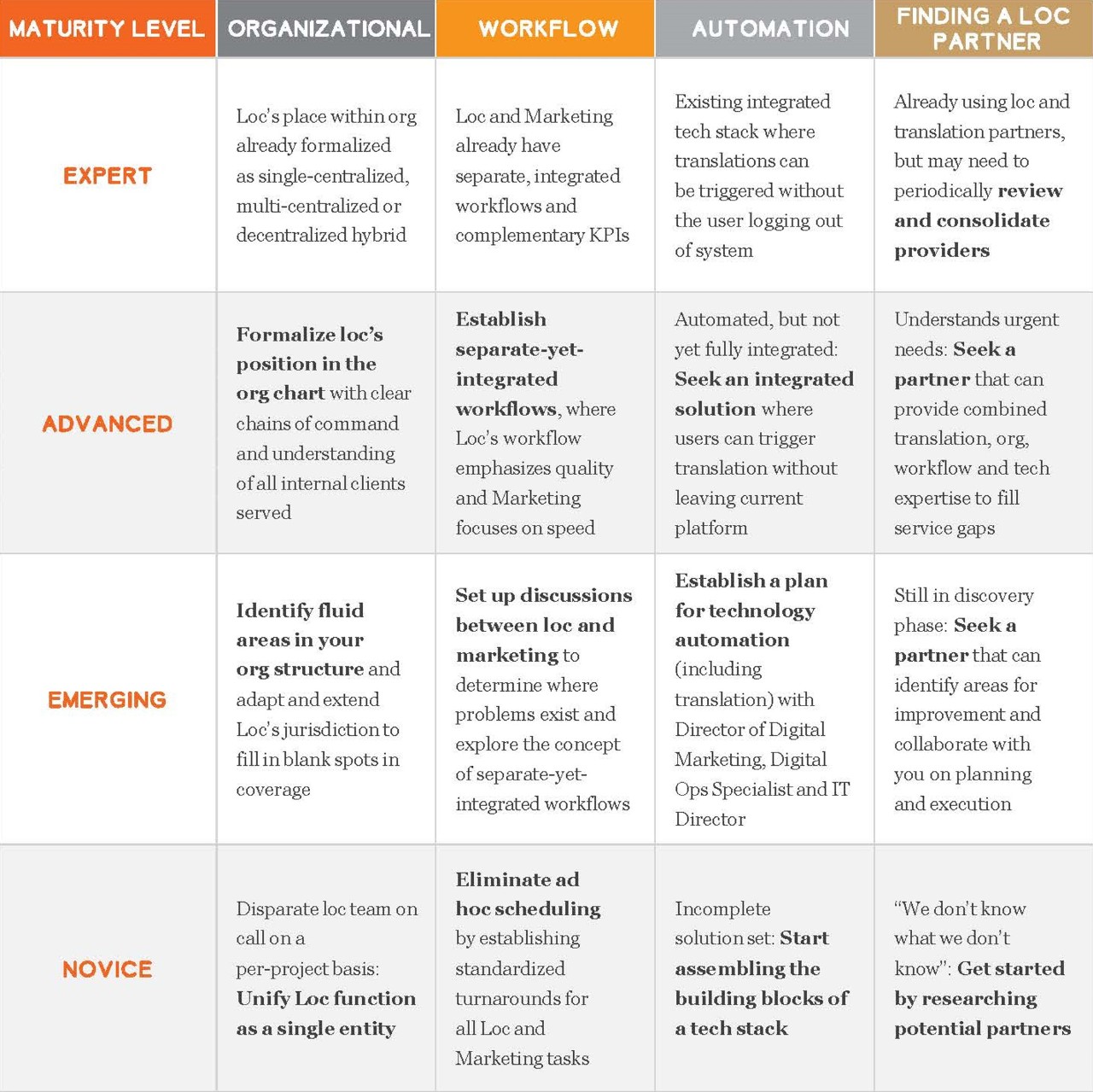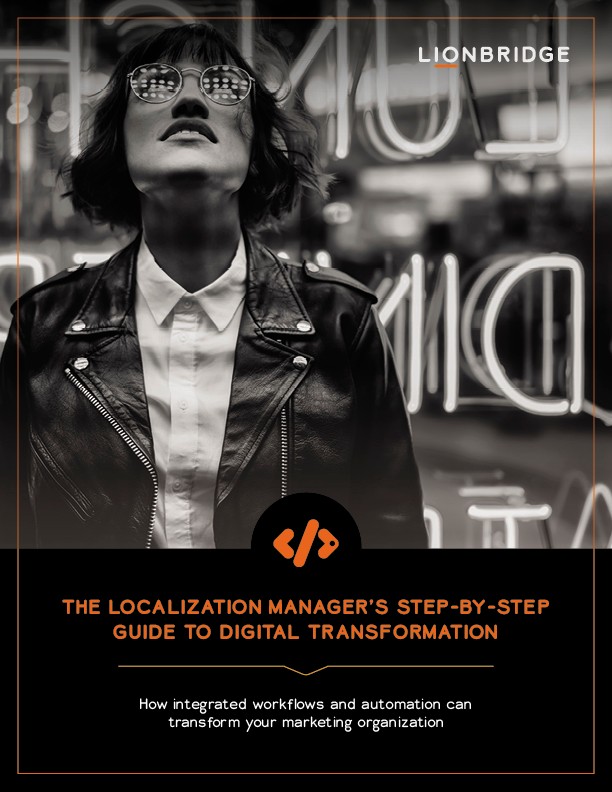- WHAT WE DO
- AI

- Industries

Content Services
- Technical Writing
- Training & eLearning
- Financial Reports
- Digital Marketing
- SEO & Content Optimization
Translation Services
- Video Localization
- Software Localization
- Website Localization
- Translation for Regulated Companies
- Interpretation
- Instant Interpreter
- Live Events
- Language Quality Services
Testing Services
- Functional QA & Testing
- Compatibility Testing
- Interoperability Testing
- Performance Testing
- Accessibility Testing
- UX/CX Testing
Solutions
- Translation Service Models
- Machine Translation
- Smart Onboarding™
- Aurora AI Studio™
Our Knowledge Hubs
- Positive Patient Outcomes
- Modern Clinical Trial Solutions
- Future of Localization
- Innovation to Immunity
- COVID-19 Resource Center
- Disruption Series
- Patient Engagement
- Lionbridge Insights
Life Sciences
- Pharmaceutical
- Clinical
- Regulatory
- Post-Approval
- Corporate
- Medical Devices
- Validation and Clinical
- Regulatory
- Post-Authorization
- Corporate
Banking & Finance
Retail
Luxury
E-Commerce
Games
Automotive
Consumer Packaged Goods
Technology
Industrial Manufacturing
Legal Services
Travel & Hospitality
SELECT LANGUAGE:
In this guide, you'll learn how to:
- Assemble your digital transformation team
- Figure out the Marketing team’s priorities
- Create new workflows that integrate Localization and Marketing
- Future-proof your team through automation
- Find partners who understand your digital transformation
Digital transformation is not a problem for the far-flung future. It’s here now, and it’s one of the most pressing problems facing businesses today. In fact, digital transformation is accelerating, as technology forces businesses to modify their processes and adapt to meet the demands of customers.
The days when the Localization department could exist in a silo are gone. It’s time to embrace digital transformation and partner with the Marketing department in a way that helps you, your team, and your organization.
We’ve created this step-by-step guide to integrating Marketing and Localization in the name of digital transformation. When carried out correctly, it will help you to bring these departments closer together—and access the many rewards of having a cohesive, global brand.
Why Integrate Localization and Marketing?
Marketing and Localization are stuck in an endless loop of content creation, quality assessment and analysis. The wheel is self-sustaining, and if you don’t modify your processes and work closely together, the volume of content will eventually overwhelm both departments.
Integration will help you to deal with a larger number of requests from the Marketing department, and hopefully preserve your sanity in the process.

1: Assemble Your Digital Transformation Team
You’re going to need everybody in Marketing and Localization pulling together to achieve your goals. Here are some of the people who could make or break your digital transformation efforts:

Director or VP of Digital Marketing
The Director of Digital Marketing serves as the voice of an executive stakeholder.

Digital Operations (DigiOps) Specialist
DigiOps Specialists have a clear view of the marketing tech organization.

IT Director
IT’s inclusion is important from a security and compliance viewpoint.

Content Creator
It’s crucial to include the people who create your content in your digital transformation efforts.

Localization Project Manager
Localization Project Managers work to make localization projects function smoothly.

The Localization Team
Your integration simply won’t work without buy-in from your team.
2: Identify Marketing’s Priorities
Today’s digital marketer is simply struggling to stay afloat in a sea of content, much of which needs to be translated. They’re juggling an ever-increasing number of platforms and trying to manage the expectation that they will produce content wherever their customers are, no matter how many languages and markets that involves.
The accelerating need for more content has led Marketing to one priority that dominates almost everything else: speed.
As a result, the Marketing team often has a different view of what “quality” means. If you’re not careful, you’ll find yourself working with a marketing team that’s divorced from your process and KPIs, which increasingly reaches out to you for just-in-time translations for global audiences, or with a marketing team that does its own translation and localization work, circumventing your team in the name of speed and results.
However, Localization doesn’t have to clash with the Marketing team on this. In fact, localization could be their saving grace. Your knowledge and skill set, applied correctly, is a direct solution to their speed problem and can help them to ensure that your company’s brand resonates across the globe.

3: Build New Loc-Marketing Workflows
In localization, success is often achieved through a complex process which ensures 100% perfection and demands ongoing quality control. For marketing localization, however, customer engagement is the success metric. This means that the Marketing team is more likely to be happy with a campaign message that’s delivered in-market quickly and with the potential to delight end-users.
These two goals may seem mutually exclusive, but they're not. The solution lies in developing segmented workflows that accommodate both priorities.
To win on both quality and speed, develop these workflows together. Keep them tightly coordinated, so they’re effectively integrated. Make sure to retain individual KPIs, with measurements that reflect localization’s traditional emphasis on quality control and Marketing’s need for speed in multi-faceted digital and omni-channel campaigns.
4: Champion Automation
Automation is the difference between long-term and short-term success in digital transformation projects. It will help you to future-proof your system and prevent your workload from becoming unmanageable.

Link Marketing and Translation Technology
It’s important to see the value of linking marketing and translation technologies. The more you can work within and link to existing marketing systems, the more likely marketing is to use your services—and the better your global content will be as a result.

Use Plugins to Meet Marketers in the Tools They Use
The ability to trigger translations directly from systems they already use is a silver bullet for marketing professionals. They should be able to automatically trigger fast translations in the languages they need, receive notifications on the project’s timeline, and keep track of the deliverables— all without logging out of the content management system they know and love.

Embrace Machine Translation
Machine translation algorithms work best on repetitive or predictable texts that have clear and obvious aims. Employing a machine translation algorithm for these kinds of text will allow you to deal with these requests quickly. It will also free up your translation team to focus on other, more complex types of content, where quality is more difficult to achieve.
5: Transform Your Localization Ecosystem
Choosing the right team can dramatically improve your localization efforts—and that applies just as much outside your company as it does inside.
Here’s what a localization partner should be able to do for your digitally mature localization team:
- Leverage years of experience to help you and your Marketing colleagues assemble workflows that reflect your needs and priorities
- Integrate seamlessly into your technology stack
- Manage your global brand voice across all relevant digital channels
- Augment your services with best-in-class marketing translation, transcreation, copywriting, and vocalization services
- Capture local nuances, dialects, and idioms where relevant
- Provide you with organizational expertise, no matter how you configure your localization function
- Offer you complete scalability that can handle any global program or set of programs
Action Items for Localization Managers
The Impact of Digital Transformation
Digital transformation isn’t easy, but it’s worth the rewards. By integrating with Marketing, improving your workflows and embracing automation, you’ll improve your turnaround time and quality processes at every point of the content journey. You’ll connect your localization efforts with real-world outcomes and see your impact reflected in the Marketing team’s KPIs, whether that’s bounce rates, engagement metrics, or conversion statistics. Best of all, you’ll help to build a consistent brand that resonates with consumers, no matter the market, medium, or language.
Click on the image below to read the full guide:




